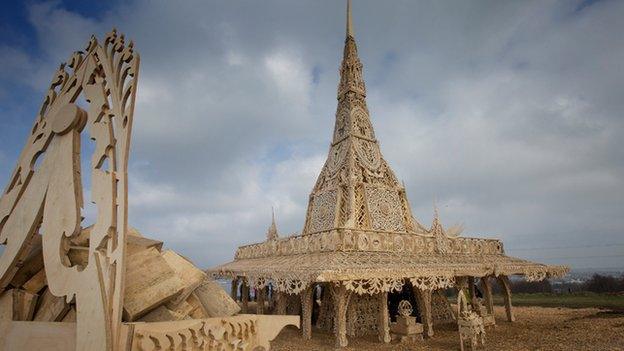Burning of Temple in Londonderry takes place
- Published
The temple was burned to the ground in front of thousands of spectators
The burning of a 70-foot carved wooden tower called Temple has taken place in Londonderry.
More than 15,000 people attended the event on Saturday night as the artwork was set alight in the Waterside area.
The project was the work of US artist David Best, and his aim was to offer an alternative perspective on bonfires.
He said the temple had given the people of Derry a neutral, cross-community space where they "celebrated and reflected on their losses together".
'Forgiveness and celebration'
More than 60,000 people visited the structure in the week before it was set alight, leaving hundreds of personal messages of love and loss inside the temple.
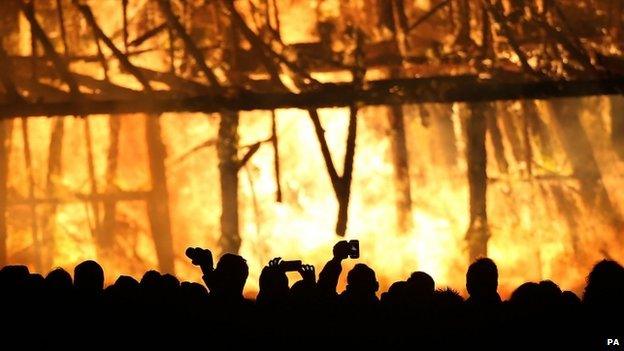
Those attending captured images of the inferno on their mobile phones
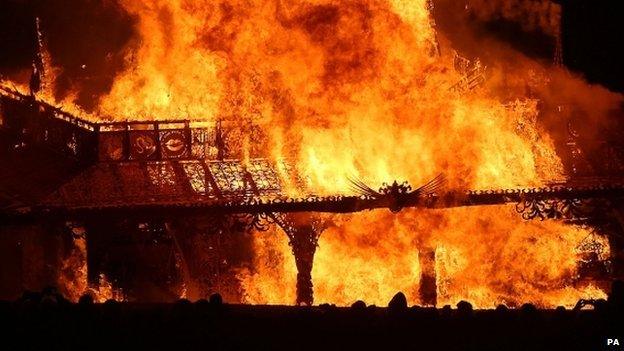
The idea of fire as cleansing is a tradition that dates back thousands of years
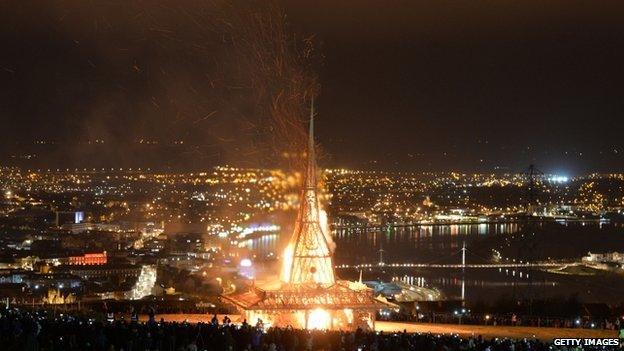
Members of the public have used Temple for the past week as a space for contemplation and remembrance
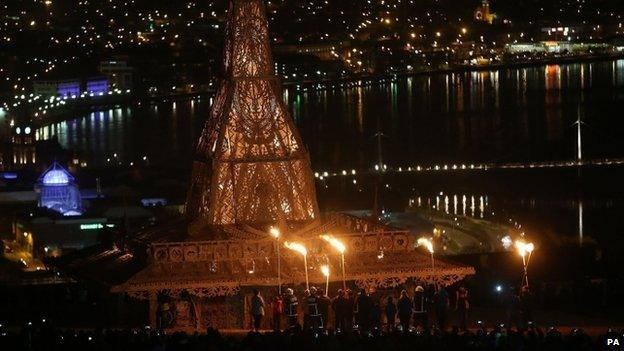
David Best has said the concept behind the temple is for people to "share in the celebration of peace in Northern Ireland"
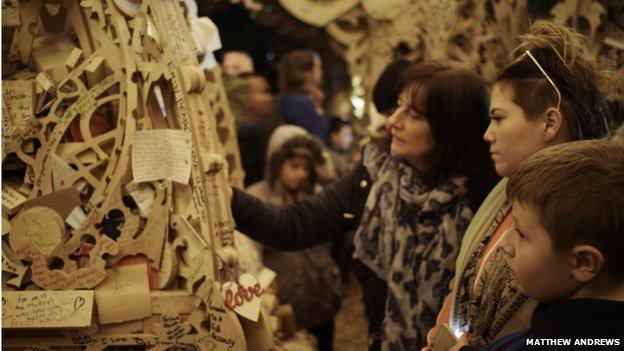
During the week it was open to the public, more than 60,000 people visited the structure, leaving personal messages
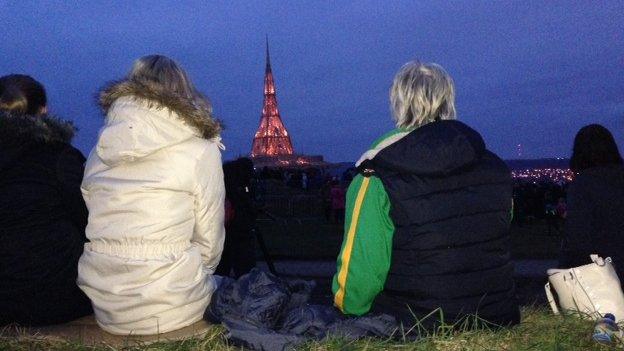
Crowds gathered from early evening for the burning of the tower
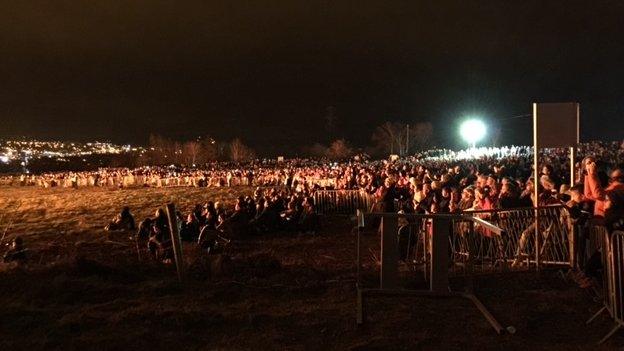
The structure was located on Kelly's Field high above the city looking down on the River Foyle
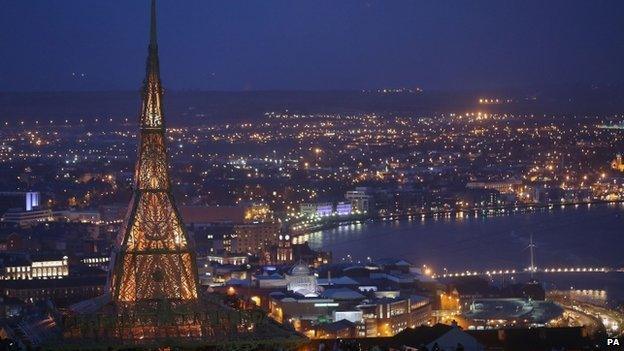
Thousands of people visited the site this week
Organisers said they were delighted with the response from the community in Derry.
The artist told BBC Radio Ulster's Sunday Sequence programme his "greatest fear" was that the tower would not burn and collapse correctly, so he was relieved the event had gone to plan.
Mr Best started building temple bonfires at Nevada's Burning Man Festival 15 years ago, as a way for communities to express grief and remembrance.
"To me fire represents forgiveness and celebration," he said.
'Intention of healing'
In Northern Ireland, bonfires are traditionally lit by loyalists in July to commemorate the victory of the Protestant King William III over the Catholic monarch James II at the Battle of the Boyne in 1690.
In August, republicans set bonfires to mark the anniversary of internment, when the government interned hundreds of people without trial at the height of the Troubles.
Mr Best was asked if it was a "double standard" that the temple bonfire was being celebrated while more traditional bonfires were often viewed as hostile.
"If you start off with an intention to scare or frighten or ridicule, then that's what your art is going to look like and that's what it's going to do. If you start with the intention of healing or trying to make some kind of forgiveness or understanding, that's what your work is going to do," he told the programme.
"I didn't come to Ireland to change the bonfires, I just came to offer an alternative that could be built by both communities, and not have the issue of ridicule or scorn in it, and I think we did that.
"I think last night was evidence that the cross-community came together and celebrated and reflected on their losses together."
- Published20 March 2015
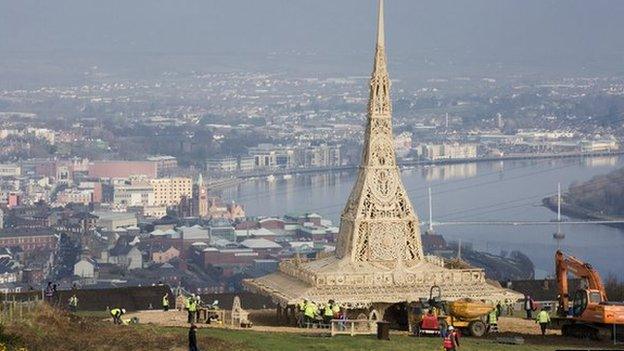
- Published19 March 2015
